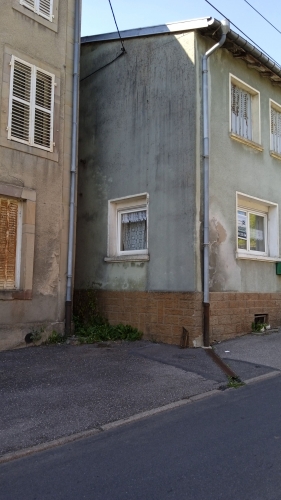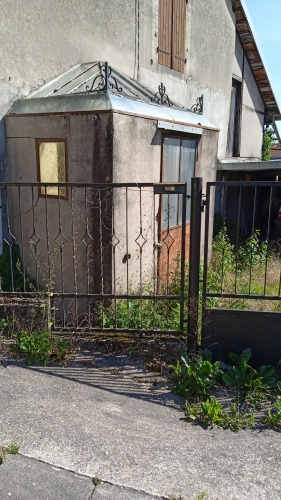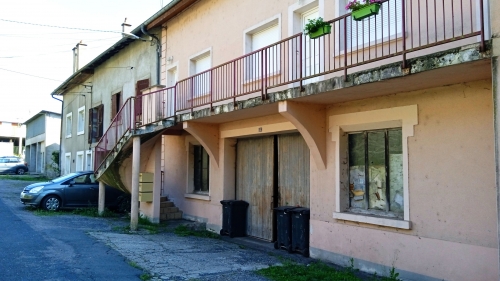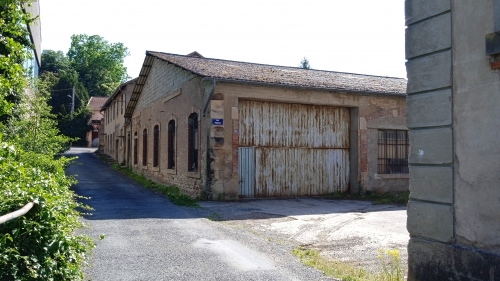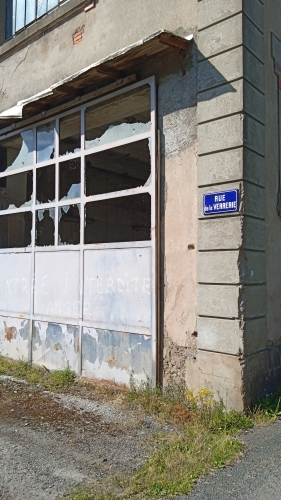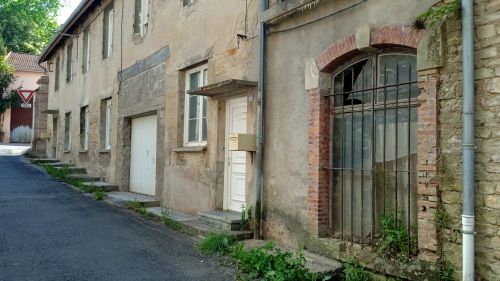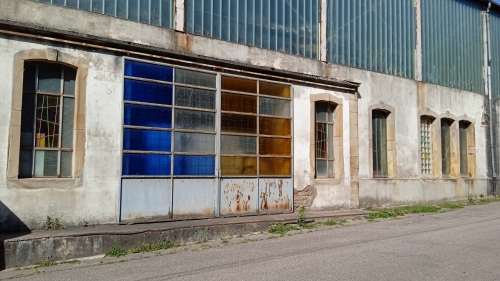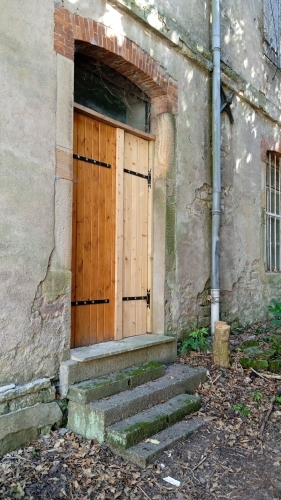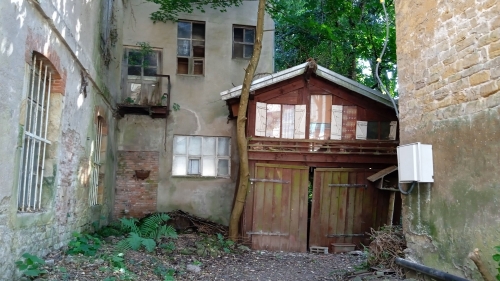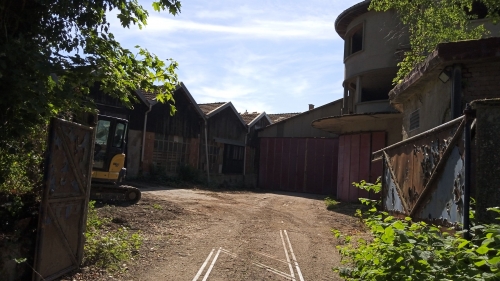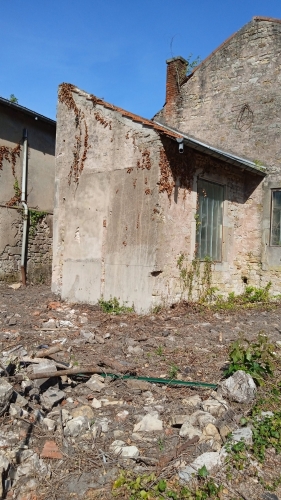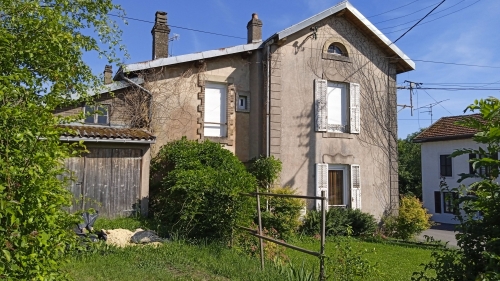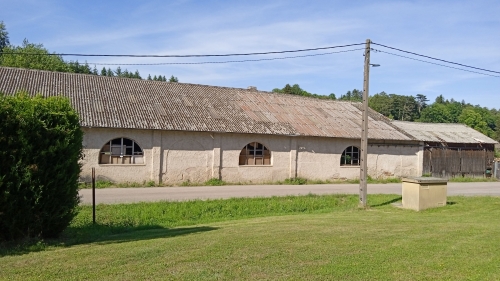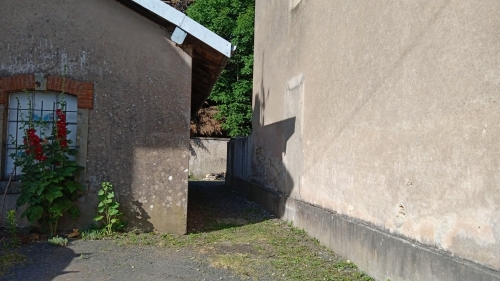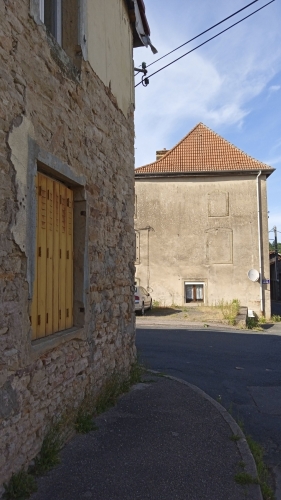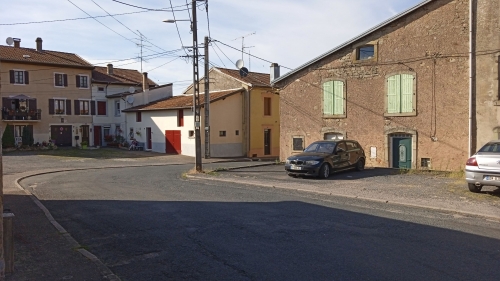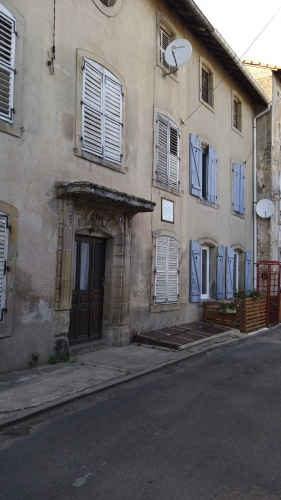FRANÇAIS
Cet après-midi j'ai été chassé de chez moi par le boucan à l'étage au-dessus. Une fois de plus. Je suis donc parti me promener en voiture, dans une colère noire et ai échoué à Cirey.
J'y ai erré tout l'après-midi dans un état de sidération et d'excitation grandissante, en réalisant que toute la ville n'était à peu de chose près qu'une immense friche industrielle, aménagée et habitée. Avec ces rues entières de bâtiments visiblement inoccupés, inhabités, menaçant ruine. La grisaille, les pierres nues, les jardins à l'abandon. La végétation qui prolifère et donne une atmosphère paisible au désastre. Seules quelques rues pavillonnaires, semblables à celles de toutes les autres communes de France, semblaient récentes et en bonne santé, croissant dans toutes les directions aux confins de la ville, comme évitant son centre de ruines maudites.
Jamais je n'ai eu autant cette impression de voir un environnement d'après la fin du monde – et à l'échelle locale c'est réellement le cas ; la petite ville a connu une heure de gloire industrielle dont il ne reste rien aujourd'hui, et ses habitants vivent au milieu des ruines, au sens propre.
J'ai vu une femme ouvrir la porte d'un entrepôt abandonné qui lui servait apparemment de garage, peut-être même de pièce à vivre, qui sait, dans une usine abandonnée jouxtant sa maison.
J'ai vu une cabane en bois construite sur un ancien terrain industriel en friche. Des habitants y avaient aménagé des jardins.
J'ai erré sur des terrains au sol entièrement constitué de gravats, parsemé de maisons en ruines et d'entrepôts qui semblaient avoir été bombardés.
Un passé plus lointain se laissait deviner aussi ; en passant dans une ruelle désolée où je ne pensais rien trouver, j'ai vu le linteau extrêmement ouvragé de ce qui semblait une maison très ancienne et luxueuse ; une habitante, assise sur les marches de sa propre maison, mitoyenne de l'autre, m'a appris que tout cela constituait autrefois un véritable château. Une pancarte le confirmait quelques mètres plus loin. Face au « château » de petites granges en agglos et en bois menaçaient ruine. Ainsi, ici aussi, les gens du crû vivotaient dans les ruines d'un passé glorieux.
En y repensant, mon excitation était une occurrence de plus de cet état malsain, anormal, dans lequel j'arrive à me plonger quand j'explore de nouveaux lieux qui s'avèrent être vieux, délabrés, déserts. Je devrais préférer la vie, la beauté, l'animation, mais non, c'est l'entropie qui manifestement m'attire.
ENGLISH
This afternoon, I was driven out of my home once again by the racket upstairs. So I got in my car, seething with anger, and ended up in Cirey.
I spent the entire afternoon wandering through the town in a state of shock and growing excitement, realizing that the whole place was, for the most part, a vast industrial wasteland – inhabited and repurposed. Entire streets of visibly unoccupied, uninhabited, crumbling buildings. The greyness, the bare stone, the overgrown gardens. Vegetation spreading everywhere, lending a strangely peaceful air to the devastation. Only a few residential streets – identical to those in any other French town – seemed recent and in good health, sprawling outward at the town’s edges, as if deliberately avoiding the cursed, ruined center.
I have never felt so strongly that I was witnessing a post-apocalyptic landscape – and on a local scale, that’s exactly what it is. This small town once had its moment of industrial glory, but nothing remains of it today. Its inhabitants quite literally live among the ruins.
I saw a woman open the door of an abandoned warehouse she seemed to be using as a garage – perhaps even as a living space – right next to her house.
I saw a wooden shack built on the overgrown grounds of a former industrial site. Locals had turned the area into makeshift gardens.
I wandered across terrain where the ground was made entirely of rubble, scattered with ruined houses and warehouses that looked like they'd been bombed.
Hints of a more distant past surfaced too. Walking down a desolate alley where I expected to find nothing, I came across an intricately carved lintel, once part of what must have been a luxurious old house. A woman sitting on the steps of her own adjoining home told me it had all once been a castle. A sign a few meters away confirmed it. Facing the “castle” were dilapidated sheds made of cinder blocks and wood, on the verge of collapse. Here too, the locals were eking out their lives among the remnants of a glorious past.
Thinking back on it, that excitement I felt was yet another instance of the unhealthy, abnormal state I enter when exploring unfamiliar places that turn out to be old, dilapidated, deserted. I should prefer life, beauty, vibrancy – but no, it's entropy that draws me in, unmistakably.
